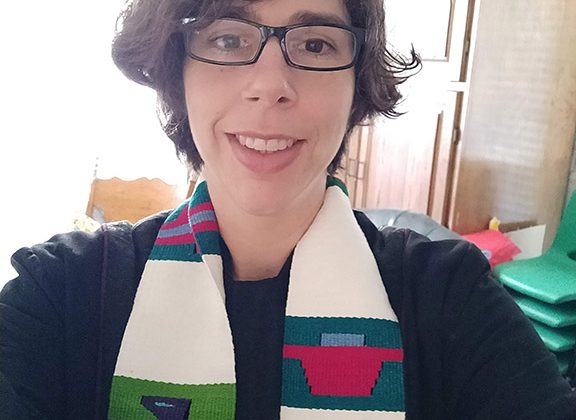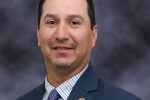Jennings: Freedom For Others
By Rev. Sabrina Jennings
Being at least a fourth generation Texan, (probably more, but my history gets muddled) I admit that I, along with many proud Texans, am stubborn and don’t like being told what to do. I like my freedom. It’s an ingrained cultural value that even children pick up on, arguing with one another that they can do what they want because, “it’s a free country”. Freedom, we believe, is the right to pursue our dreams, say and do as we please and not be bothered by anyone else.
This freedom is a freedom from; from relationship, from interrelatedness, from God and from neighbor. It is dominated by a concern for the self and a drive to acquire. I am free therefore I don’t have to give consideration to how my actions affect others. I am free therefore I should get all that I want. I am free therefore I am concerned with what is good for me individually.
We see people and institutions acting out this type of freedom in a wide variety of ways. Businesses who cut corners to save money with no regard for the employees those actions negatively impact because they are free from oversight. Men who catcall and harass women because they are free from consequence. Family members who drink excessively, leading to harmful and abusive behaviors, because they are free from legal restrictions. This freedom is the norm, yet far from what true freedom is as revealed to us in the example of Jesus.
In Philippians, we learn about a very different freedom. Jesus, “though he was in the form of God, did not regard equality with God as something to be exploited, but emptied himself, taking the form of a slave, being born in human likeness.” (Philippians 2:6-7, NRSV). Jesus, who had all freedom and power to chose what was easiest, what was most glamorous, and what was most self-pleasing, instead chose a self-emptying, other-serving, freedom for. As theologian, Dietrich Bonhoeffer wrote, “God freely chose to be bound to historical human beings and to be placed at the disposal of human beings. God is free not from human beings but for them” (emphasis mine).
For us then, followers of Christ and those looking for a better way, freedom means we are free to choose to serve, be in relationship, and seek the well-being of all of God’s creation. I am free therefore I choose to consider how my actions impact others. I am free therefore I choose to be in relationship. I am free therefore I choose to serve my neighbor.
This is good news, not just for the community, but for each individual person as well! When we embrace this freedom, we undo the bonds that materialism, self-promotion, and fear have upon us. The feeling of anxiety because there may not be enough for me if others have access to what I want, can be released. The stress of always trying to accomplish more, make more money or earn greater recognition, can be let go. The overwhelming domination of material things can be exchanged for the joy of community.
There is, however, great tension between these two freedoms. We sense this as we struggle through the ongoing health crisis; wanting our freedom from government mandates, yet having been given a freedom for choosing to protect our neighbors, easing the burden on healthcare workers, and being a part of the solution through mask wearing and vaccination. We, as a nation, have once again been called to repentance for the pain caused by racism; feeling the tension between a desire for freedom from others dictating what can and can’t be said and a freedom for those who have been hurt, to serve them with love and justice. After the recent winter storms, we have to wrestle with this tension as we decide how resources are allocated; do we continue with policies that embrace a freedom from oversight and regulation in the name of good business or do we choose a freedom for our neighbors to ensure that no one is left in the cold? It can be a difficult tension to navigate, but choosing the freedom of Jesus is life-giving.
My great-grandfather looked like a picture of western freedom. A cowboy, working cattle on his south Texas ranch; there was nobody around for miles to intrude upon his freedom. Yet, whenever a stray traveler passed by, be it a salesman, ranch-hand, or wanderer, he chose a freedom for his neighbor and invited them in to sit, eat, and be refreshed. I imagine them gathered around the small table, sharing what food they had, laughing and resting weary feet while muddy boots stood by the door. Now this, is a picture of self-emptying, serving, freedom for.




